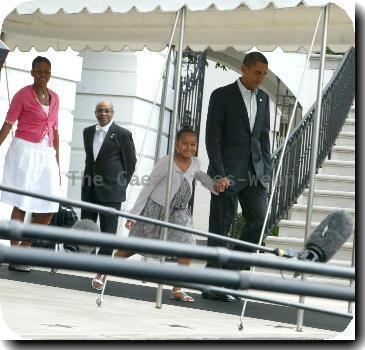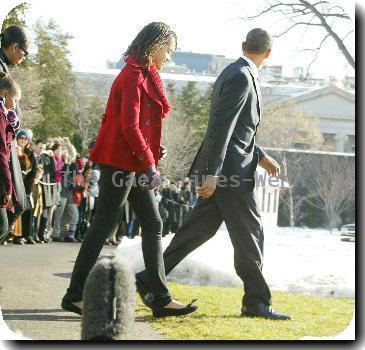Seeking right tone on oil spill, Obama is gentle with Britons in his diplomacy, tough with BP
By Charles Babington, APSaturday, June 12, 2010
Obama stand on oil spill is tough and temperate
WASHINGTON — President Barack Obama took a fist-and-olive-branch approach to the Gulf oil spill Saturday, giving BP a deadline to accelerate cleanup efforts while also reassuring Britons he’s not pointing a finger at them or their national institutions.
The strategy carries some political risk. Obama was overtly diplomatic in his phone call Saturday with British Prime Minister David Cameron, which the president’s opponents might use to reinforce their claims that he is being too gentle in confronting the nation’s worst oil spill.
But Britain is a key ally, and Obama seemed eager to ease its concerns that he had gone too far in attacking a major British-based company_and one in which millions of Britons have invested savings.
The day began with the administration releasing a stern letter to BP, formerly known as British Petroleum.
“BP must identify in the next 48 hours additional leak containment capacity” that can be used “to avoid the continued discharge of oil,” wrote Coast Guard Rear Adm. James A. Watson.
A short time later, the White House used a much softer approach in handling Obama’s late-morning phone call with Cameron.
The White House let Cameron’s office issue the first description of the 30-minute chat. The prime minister stressed that Obama is not attacking Britain or suggesting the oil spill is somehow British in nature.
When the White House finally released its own statement, nine of the 10 sentences dealt with other matters, such as Iran, Afghanistan and World Cup soccer. The other sentence said the two men discussed the impact of the spill, “reiterating that BP must do all it can to respond effectively to the situation.”
Minutes later, a senior Obama administration official, speaking on condition of anonymity to describe the private talk, confirmed that the president had told Cameron “that our frustration has nothing to do with national identity.” It focuses instead on “ensuring that a large, wealthy company lives up to its obligations,” the official said.
The Gulf oil spill has preoccupied the administration for weeks. Even some of Obama’s strongest admirers feel his response at times has been halting and aloof.
The president has ratcheted up his rhetoric lately, saying he is consulting with experts to figure out “whose ass to kick.” He said he would have fired BP’s top executive if he were in charge, and he suggested the company suspend its quarterly dividend payments.
Obama will make his fourth trip to the Gulf region Monday, and plans to meet there with top BP executives.
Some critics have compared Obama’s handling of the spill to the much-maligned response of then-President George W. Bush to Hurricane Katrina. White House officials resent such talk, calling it off base.
Katrina was a purely domestic disaster, but the Gulf spill has international ramifications. When Cameron, in office for one month, expressed concerns about BP’s falling stock prices, Obama agreed to Saturday’s wide-ranging phone call and its statesmanlike tone.
Downing Street said Cameron and Obama reaffirmed their belief in “the unique strength of the U.S.-U.K. relationship.” It announced that Cameron will visit Washington on July 20.
Cameron’s office said the two men agreed that BP should continue “to work intensively to ensure that all sensible and reasonable steps are taken as rapidly as practicable to deal with the consequences of this catastrophe.”
That cautious sentence had all the trappings of a diplomat’s communique. For now, the White House is willing to mix such careful commentary with the occasional hard-nosed rhetoric of a president facing an environmental and political bind.
(This version CORRECTS Corrects that Cameron’s U.S. visit will not be his first overseas trip as prime minister)
Tags: Barack Obama, District Of Columbia, Europe, North America, Personnel, United Kingdom, United States, Washington, Western Europe, World cup



